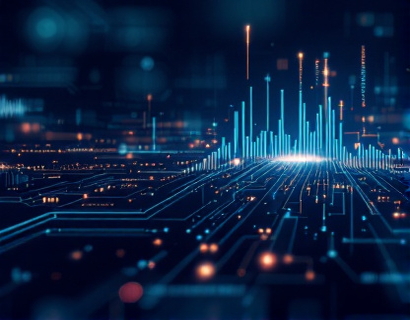Maximize Business Growth with Intelligent AI Marketing Agents
In today's fast-paced digital landscape, businesses are constantly seeking innovative ways to stay ahead of the competition and drive growth. One of the most transformative advancements in marketing is the integration of Intelligent AI Marketing Agents. These cutting-edge tools automate and optimize marketing strategies, significantly enhancing customer engagement and return on investment (ROI). By leveraging AI technology, businesses can streamline their marketing efforts, allowing them to focus on core activities with greater confidence and efficiency.
Understanding AI Marketing Agents
AI Marketing Agents are sophisticated software solutions designed to mimic human-like decision-making and interaction. These agents use machine learning algorithms to analyze vast amounts of data, identify patterns, and make informed decisions. Unlike traditional marketing tools, AI agents can adapt and learn from their environment, continuously improving their performance over time. This capability makes them invaluable for businesses looking to maximize their marketing impact.
Automation of Marketing Tasks
One of the primary benefits of AI Marketing Agents is their ability to automate routine and time-consuming marketing tasks. These tasks include social media management, email marketing, content creation, and customer segmentation. By automating these processes, businesses can save significant time and resources. For instance, AI agents can schedule and publish social media posts at optimal times, ensuring maximum reach and engagement without manual intervention.
Moreover, AI agents can handle complex tasks such as A/B testing and optimization. They can run multiple versions of a campaign simultaneously, analyzing user interactions and preferences to determine the most effective approach. This not only saves time but also ensures that the best-performing strategies are consistently implemented, leading to better results.
Enhanced Customer Engagement
Customer engagement is a critical factor in business growth. AI Marketing Agents excel in this area by providing personalized and contextually relevant interactions. Through natural language processing (NLP) and machine learning, these agents can understand customer needs and preferences, tailoring communications to individual users. This level of personalization fosters stronger relationships and increases customer loyalty.
Chatbots, a common application of AI Marketing Agents, are particularly effective in enhancing customer engagement. These virtual assistants can handle customer inquiries 24/7, providing instant responses and support. By resolving issues quickly and efficiently, chatbots improve customer satisfaction and reduce the workload on human support teams. Additionally, AI agents can analyze customer data to predict future needs, allowing businesses to proactively address potential issues and opportunities.
Optimizing Marketing Strategies
AI Marketing Agents are powerful tools for optimizing marketing strategies. They can analyze vast datasets to identify trends, patterns, and insights that human marketers might miss. This data-driven approach enables businesses to make informed decisions, refine their strategies, and allocate resources more effectively. For example, AI agents can track the performance of different marketing channels, identifying which channels drive the most conversions and ROI.
Furthermore, AI agents can help businesses stay ahead of market trends by continuously monitoring competitor activities and industry developments. This real-time intelligence allows companies to adapt their strategies quickly, maintaining a competitive edge. By leveraging AI-driven insights, businesses can refine their target audiences, messaging, and offers to better resonate with their customers.
Increasing ROI
One of the most significant advantages of using AI Marketing Agents is the potential to increase ROI. By automating and optimizing marketing processes, businesses can achieve better results with less effort and cost. AI agents can identify the most effective marketing channels and tactics, ensuring that budget is allocated where it matters most. This precision reduces waste and maximizes the impact of marketing spend.
Additionally, AI agents can help businesses measure and attribute the success of their marketing efforts more accurately. Advanced analytics and attribution models provided by these agents allow for a clearer understanding of the customer journey and the contribution of each touchpoint. This granular insight enables businesses to optimize their marketing funnels, reducing costs and improving conversion rates.
Empowering Businesses to Focus on Core Activities
By taking over routine and repetitive tasks, AI Marketing Agents free up valuable time for business leaders and marketing teams. This empowerment allows them to focus on strategic initiatives that drive long-term growth and innovation. Instead of getting bogged down by day-to-day operations, businesses can concentrate on developing new products, expanding into new markets, and building stronger brand identities.
Moreover, the insights provided by AI agents can inform higher-level decision-making. Business leaders can use data-driven recommendations to make more informed strategic choices, from product development to market entry. This level of support ensures that decisions are based on solid evidence, reducing the risk of costly mistakes and enhancing overall business performance.
Case Studies and Real-World Applications
Several businesses have already seen remarkable success by integrating AI Marketing Agents into their operations. For instance, a retail company implemented an AI-powered chatbot to handle customer inquiries and provide personalized recommendations. The result was a 30% increase in customer satisfaction and a 25% boost in sales. The chatbot's ability to handle multiple interactions simultaneously also reduced the support team's workload by 40%.
Another example is a B2B software firm that used AI agents to optimize their email marketing campaigns. By analyzing open rates, click-through rates, and conversion data, the AI agent identified the most effective subject lines and content types. As a result, the firm saw a 50% increase in email campaign ROI and a significant reduction in unsubscribe rates.
Challenges and Considerations
While the benefits of AI Marketing Agents are clear, businesses should be aware of potential challenges and considerations. One common concern is the initial investment required to implement these advanced solutions. However, the long-term savings and increased efficiency often justify the upfront costs. It's essential to conduct a thorough cost-benefit analysis to ensure the investment aligns with business goals.
Another consideration is the need for skilled personnel to manage and interpret the data generated by AI agents. While AI can automate many tasks, human oversight and expertise are still crucial for strategic decision-making and fine-tuning the agents' performance. Investing in training and developing a data-driven culture within the organization can help overcome this challenge.
Future Trends in AI Marketing
The field of AI Marketing is rapidly evolving, with new technologies and applications emerging regularly. One exciting trend is the integration of AI with augmented reality (AR) and virtual reality (VR) to create immersive customer experiences. AI agents can personalize these experiences in real-time, based on user behavior and preferences, further enhancing engagement and conversion rates.
Another area of growth is the use of AI in predictive analytics and sentiment analysis. By leveraging natural language processing and machine learning, businesses can gain deeper insights into customer sentiments and predict market trends with greater accuracy. This foresight enables proactive strategies and more effective crisis management.
Conclusion
Intelligent AI Marketing Agents represent a significant leap forward in marketing technology. By automating routine tasks, enhancing customer engagement, and optimizing strategies, these agents help businesses achieve higher ROI and focus on core activities. As the technology continues to advance, the potential for growth and innovation in marketing is immense. Embracing AI Marketing Agents can be a strategic move for any business looking to thrive in the digital age.










































